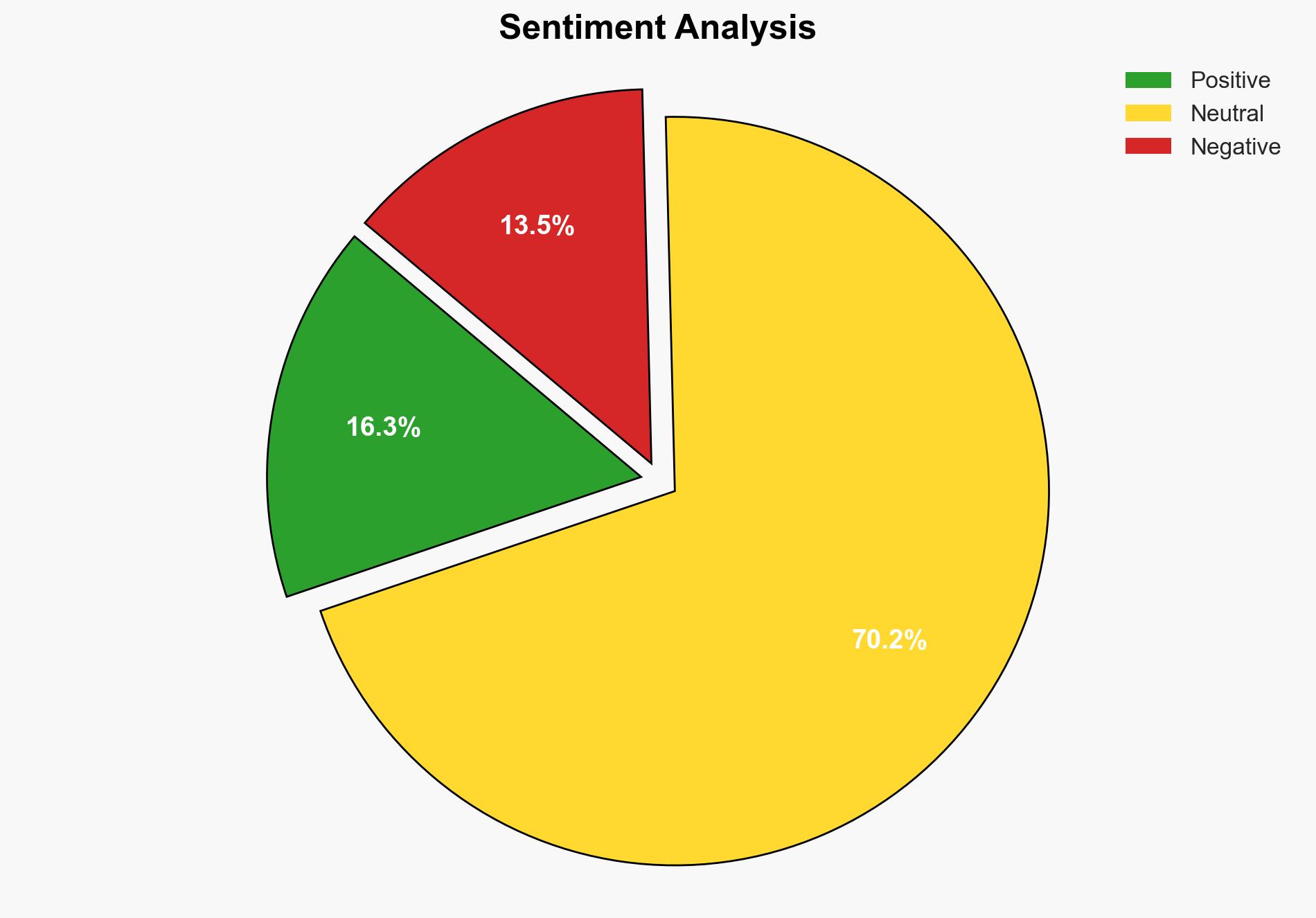Israels parliament passes law to expand coontrol over judge appointments – Al Jazeera English
Published on: 2025-03-27
Intelligence Report: Israels parliament passes law to expand control over judge appointments – Al Jazeera English
1. BLUF (Bottom Line Up Front)
Israel’s parliament has passed a controversial law expanding control over judicial appointments, a move seen as part of a broader plan to reshape the judiciary. This has triggered renewed protests and heightened concerns about democratic erosion. The law’s passage, despite significant opposition, represents a critical shift in the balance of power between Israel’s legislative and judicial branches.
2. Detailed Analysis
The following structured analytic techniques have been applied for this analysis:
General Analysis
The new law alters the composition of the committee responsible for appointing judges, increasing the influence of politicians over judicial appointments. This change is part of a larger judicial reform package proposed by Benjamin Netanyahu, which has faced widespread criticism and sparked one of the largest protest movements in Israel’s history. Critics argue that the reforms could undermine judicial independence and pave the way for authoritarian governance. The law’s passage has intensified political polarization and public unrest in Israel.
3. Implications and Strategic Risks
The law’s enactment poses several strategic risks:
- Potential erosion of judicial independence, leading to weakened checks and balances within the government.
- Increased domestic instability due to ongoing protests and heightened political polarization.
- Potential negative impact on Israel’s international reputation and relations, particularly with allies concerned about democratic governance.
- Risk of further legislative changes that could consolidate power within the executive branch.
4. Recommendations and Outlook
Recommendations:
- Encourage dialogue between government and opposition to address concerns and seek a compromise on judicial reforms.
- Monitor the implementation of the new law and its impact on judicial independence closely.
- Engage with international partners to communicate Israel’s commitment to democratic principles and address any concerns.
Outlook:
Best-case scenario: Constructive dialogue leads to amendments that preserve judicial independence while addressing legislative concerns.
Worst-case scenario: Continued polarization and protests lead to increased domestic instability and potential international isolation.
Most likely outcome: Ongoing tensions and protests with gradual adjustments to the law as political dynamics evolve.
5. Key Individuals and Entities
Significant individuals mentioned in the report include Benjamin Netanyahu, Gali Baharav Miara, Ronen Bar, Yariv Levin, Yair Lapid, and Eliad Shraga. These individuals play critical roles in the unfolding events and their actions will significantly influence the future trajectory of Israel’s judicial reforms.





